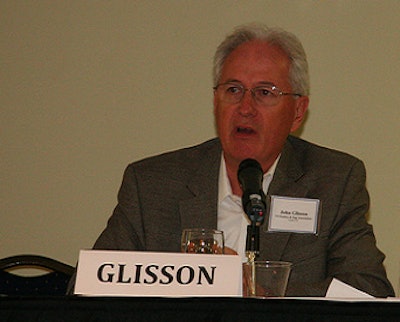
The U.S. poultry flock is as healthy today as it has ever been, Dr. John Glisson said, and biosecurity measures are a big contributing factor to the health of domestic birds. Glisson, director of research programs for the U.S. Poultry & Egg Association, delivered that message to a group of reporters at the Chicken Media Summit on April 19.
Glisson told the group, who during the previous day toured Sanderson Farms facilities, that they may have noticed they did not tour a breeder farm. That was not because the staff at Sanderson Farms didn't want the media to see the facilities, but because they had to protect the birds from any disease that may enter.
"The biosecurity is so strict on those breeder farms, that you can't take a group of people in there," said Glisson. "There's too much disease risk. When you're talking about biosecurity, the No. 1 thing we're trying to control is people. Most of the diseases that come onto a chicken farm walk onto that farm on two feet. People are the source of contamination for most things."
Glisson added that other major sources of contamination are rodents, insects and other birds. That is why so many poultry birds are in contained environments.
"We used to grow a lot of turkeys outdoors in this country," said Glisson. "Every year, there would be multiple flocks that would get infected with avian influenza."
It was common in those types of farms for a flock of migrating birds to fly over and be attracted to the wide open feeders and drinkers.
"They'd land in the middle of it and start living with turkeys. A few days later, they have influenza. What you saw with the style of housing … they are contained because of all the things we're trying to keep out."
Glisson also explained to the members of the media present that unlike the human medical profession, which focuses largely on treating illnesses after they have already occurred, the veterinary profession is totally focused on disease prevention.
The Chicken Media Summit was sponsored by the National Chicken Council and U.S. Poultry & Egg Association.















